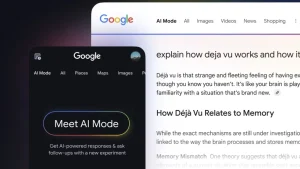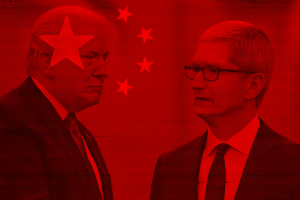In an era where the internet is as essential as the air we breathe, concerns about digital privacy and access to unrestricted information are at an all-time high. Enter the Virtual Private Network (VPN), a tool that’s becoming as commonplace as the smartphones in our pockets.
But what exactly is a VPN, and why has it become a critical asset for savvy internet users worldwide? From streaming your favorite shows on platforms like Netflix to securing your data in a public Wi-Fi hotspot, VPNs offer a multifaceted solution to modern digital dilemmas. This article peels back the layers of VPN technology, revealing how it can transform your online experience.
In this article:
ToggleVPNs Demystified
Imagine walking through a bustling city with a cloak of invisibility, your actions unseen, your conversations unheard. That’s essentially what a VPN does in the digital realm.
At its core, a VPN is a service that creates a private, secure network over the internet. It encrypts your data, rendering it unreadable to anyone who might intercept it. This encryption is like sending your online activity through a secure tunnel, away from the prying eyes of hackers, governments, or even your internet service provider.
But how does it work? When you connect to a VPN, it assigns you a new IP address, masking your real location. This is the ‘tunneling’ process. It’s like you’re accessing the internet from a different place, even a different country. This simple yet powerful mechanism not only secures your data but also tricks websites into thinking you’re browsing from a location of your choice. And it works with Wi-Fi networks as well as with 4G/5G mobile network on your mobile device.
While VPNs are incredibly effective, it’s important to note that they can sometimes affect your internet speed due to encryption processes and server distances. However, this slight decrease in speed is often a worthwhile trade-off for the increased security and privacy they provide.
Let’s get technical!
Let’s delve a bit deeper into the mechanics of VPNs. When you use a VPN, your device communicates with the VPN server, which then connects to the internet on your behalf.
This process, known as ‘routing,’ is the backbone of VPN functionality. Your data is encrypted before it leaves your device, ensuring that it remains secure until it reaches the VPN server. This encryption uses protocols such as OpenVPN, L2TP/IPsec, or IKEv2, each offering different levels of security and speed.
Another crucial aspect of VPN technology is the ‘kill switch’. This feature immediately disconnects your device from the internet if the VPN connection drops, ensuring that your data and IP address are never exposed.
Moreover, VPNs use shared IP addresses. When you connect to a VPN server, you’re assigned the same IP address as other users connected to that server. This further anonymizes your online activity, making it harder to trace actions back to you.
Streaming Without Borders
One of the most enticing uses of a VPN is in the realm of digital streaming. Major platforms like Netflix, Hulu, and Amazon Prime have different libraries for different countries. Ever found yourself itching to watch a show only to discover it’s not available in your region? That’s where VPNs step in, breaking down these digital borders.
By connecting to a server in a country where the show is available, you can access content that’s normally out of reach. It’s like having a global TV remote. This isn’t just about more shows and movies; it’s about cultural exploration and unbounded entertainment.
But it’s not all fun and games. There are ethical and legal aspects to consider. While using a VPN to access geo-restricted content isn’t illegal in most countries, it does go against the terms of service of many streaming platforms. It’s a gray area, a digital game of cat and mouse where policies and technologies constantly evolve.
And there’s a bonus. Did you know that subscription rates can vary based on geographical location? With a VPN, you might just snag a deal on your streaming subscriptions by browsing rates in different countries. Imagine subscribing to your favorite service at a fraction of the cost, all thanks to a little digital globe-trotting.
Pay less for the same service
The cost of a Netflix subscription can vary significantly from country to country. For instance, some of the most expensive countries for Netflix include Switzerland and Denmark, where the cost can be quite high compared to other regions.
On the other hand, countries like Turkey and Argentina offer Netflix subscriptions at much more affordable rates. This disparity in pricing is due to various factors including licensing agreements and local market strategies. With a VPN, you can explore these different pricing options, potentially reducing your subscription costs significantly by choosing the right server location.
The Many Facets of VPN Benefits
VPNs aren’t just one-trick ponies for streaming aficionados. They’re Swiss Army knives in the digital world, offering a plethora of benefits. Think of VPNs as your personal bodyguards, shielding your online presence. They provide an essential layer of security, especially when you’re on public Wi-Fi. Without a VPN, using public Wi-Fi is like having a conversation in a crowded room; anyone can eavesdrop. With a VPN, it’s more like a private chat in a soundproofed room.
Then there’s privacy. In an age where data is the new gold, VPNs help protect your digital footprint from being tracked and sold. They’re the cloak to your digital invisibility, preventing advertisers from bombarding you with targeted ads based on your browsing history.
And for those in countries with restricted internet access, VPNs are a beacon of freedom. They allow users to bypass censorship, granting access to a world of unfiltered information. Imagine living in a place where certain news sites are blocked, and a VPN becomes your window to the world.
These layers of functionality not only protect users but also contribute to a broader narrative of digital autonomy and empowerment, echoing the core values of internet freedom.
The power of VPNs extends into the realm of global awareness and social justice. In countries under authoritarian rule, where censorship and control over the internet are rampant, VPNs have become a beacon of truth and transparency. They allow activists, journalists, and ordinary citizens to bypass government surveillance and censorship, sharing with the world the realities of their circumstances.
Without VPNs, many crucial events and injustices in these regions might remain hidden from the global community. By enabling secure and private access to the internet, VPNs play a pivotal role in the fight for freedom and human rights across the globe.
Less known features that add extra functionality to a VPN
Alongside their basic functionality, modern VPNs come equipped with a suite of advanced features, enhancing their utility and security. These include:
- Firewall: This feature acts as a barrier between your device and the internet, blocking malicious traffic and unauthorized access attempts.
- R.O.B.E.R.T.: A customizable domain and IP blocking tool that allows users to control what kind of traffic is allowed through their VPN connection, enhancing security and browsing experience. You can use it to block particular ads, trackers, and malicious websites.
- Always On VPN: This ensures that your VPN connection is continuously active, automatically reconnecting if it drops. It’s crucial for maintaining a consistent layer of security.
- GPS Spoofing: A feature that alters your device’s GPS location to match the VPN server’s location, adding an extra layer of anonymity and privacy.
These features collectively bolster the VPN’s core purpose, offering users more control, security, and peace of mind.
Multiplatform Magic
The beauty of VPNs doesn’t stop at their functionality; it extends to their versatility across devices. Whether you’re a smartphone junkie, a laptop loyalist, or a tablet enthusiast, VPNs have you covered. Many VPN services offer apps and configurations for a range of devices and operating systems, including Windows, macOS, iOS, Android, and even Linux.
What does this mean for the average user? Seamless security and access, regardless of the device. Switching from watching a movie on your tablet to sending emails on your laptop? Your VPN has you covered, maintaining a secure and private connection across devices. And for the tech-savvy, some VPNs can even be configured on routers, protecting your entire home network.
But it’s not just about security. Imagine traveling and wanting to continue your binge-watching session where you left off. With a VPN on your mobile device, geographic restrictions won’t interrupt your streaming spree. These multiplatform capabilities ensure that your digital life is secure and unrestricted, no matter where you are or what device you’re using.
Navigating the VPN Landscape
Choosing the right VPN can feel like navigating a digital jungle. There are countless options, each promising the best service. What should you look for? Speed, server location, privacy policy, and price are key factors.
A VPN with a wide range of servers across different countries offers more opportunities to bypass geo-restrictions. Speed is crucial too; you don’t want your streaming or browsing to lag.
Privacy is paramount. Look for VPNs with a strict no-logs policy, ensuring your data isn’t stored or sold. And while free VPNs might be tempting, they often come with security risks and limitations. Investing in a reputable, paid VPN service is often worth the cost for peace of mind and optimal functionality.
When selecting a VPN, understanding the significance of the ‘5/9/14 Eyes’ alliance is crucial. This refers to a group of countries that share intelligence and surveillance data. Being aware of this is important for privacy-conscious users because a VPN based in a ’14 Eyes’ country might be legally compelled to share user data with the government.
What’s the right VPN for you?
To find the most secure solution within your price range and preferences, consider the following:
- Jurisdiction: Opt for VPNs headquartered in countries with strong privacy laws and outside the ’14 Eyes’ jurisdiction.
- No-Logs Policy: Ensure the VPN has a strict no-logs policy, meaning they don’t record your online activities.
- Security Features: Look for features like AES-256 encryption, a kill switch, DNS leak protection, and support for secure protocols.
- User Reviews and Expert Opinions: Research what others are saying about the VPN’s reliability and trustworthiness.
- Price vs. Features: Balance the cost against the features offered. Sometimes, paying a bit more can significantly enhance your privacy and security. Also, it brings extra tools that might come in handy.
By considering these factors, you can navigate the VPN landscape more effectively, finding a service that aligns with your need for privacy, security, and budget.
FAQs
Is using a VPN legal?
In most countries, yes. However, it’s important to be aware of your country’s specific laws regarding VPN use.
Are VPNs compatible with all types of networks, including home and public Wi-Fi or mobile data?
Absolutely, VPNs are designed to work seamlessly across various network types, ensuring secure and private browsing whether you’re at home or on the go.
Will a VPN slow down my internet?
It can, due to the encryption process and routing through remote servers. However, many premium VPNs minimize speed loss.
Can I use a VPN on multiple devices?
Yes, most VPN services allow simultaneous connections on multiple devices.
How do I choose the right VPN server?
It depends on your needs. For streaming, choose a server in the country whose content library you want to access. For privacy, any secure server will do.
What if my VPN is blocked?
Switching servers or using a VPN with obfuscation technology can help bypass VPN blocks.
Conclusion
In today’s digital age, where our online actions are scrutinized and restricted, VPNs stand as a tool of empowerment. They offer a blend of security, privacy, and freedom, transforming our interaction with the digital world.
Whether it’s for streaming your favorite show, protecting your personal information, or simply browsing the web freely, a VPN is an invaluable ally in your digital journey. It’s time to consider how a VPN can enhance your online experience, offering both liberation and protection in the vast digital landscape.
Have you ever used a VPN to access content, enhance security, or protect your privacy? What was your experience like? Share your stories, tips, or questions about VPNs in the comments below. Your insights could be the key that unlocks someone else’s digital potential!






